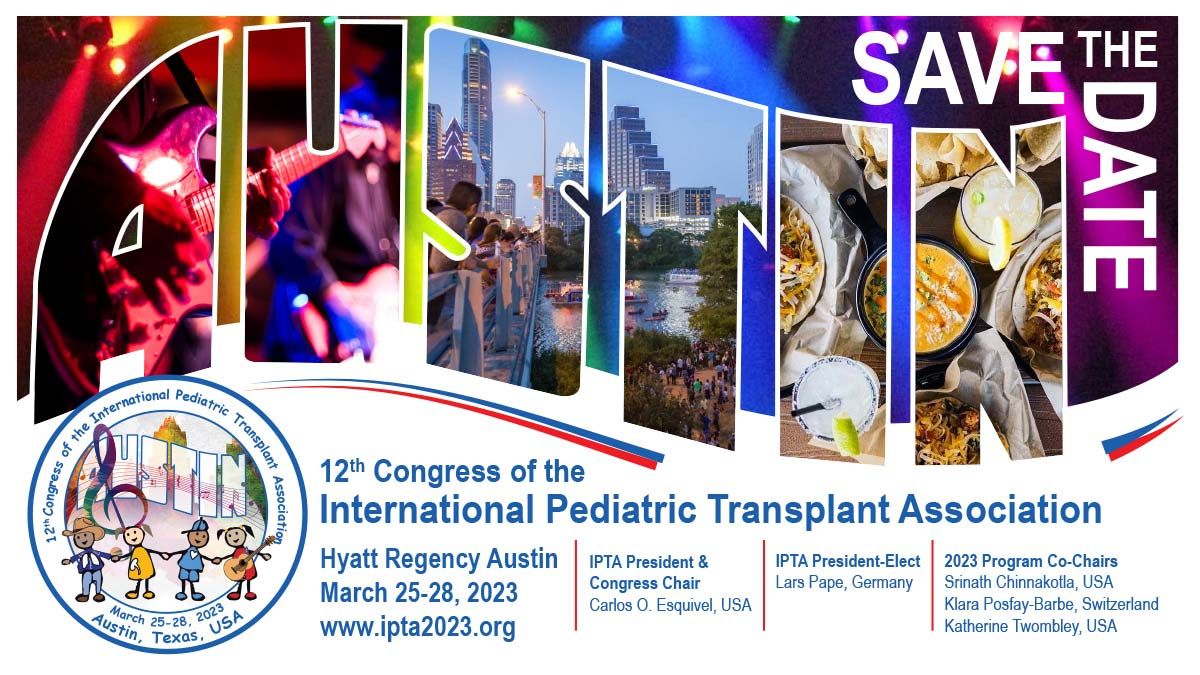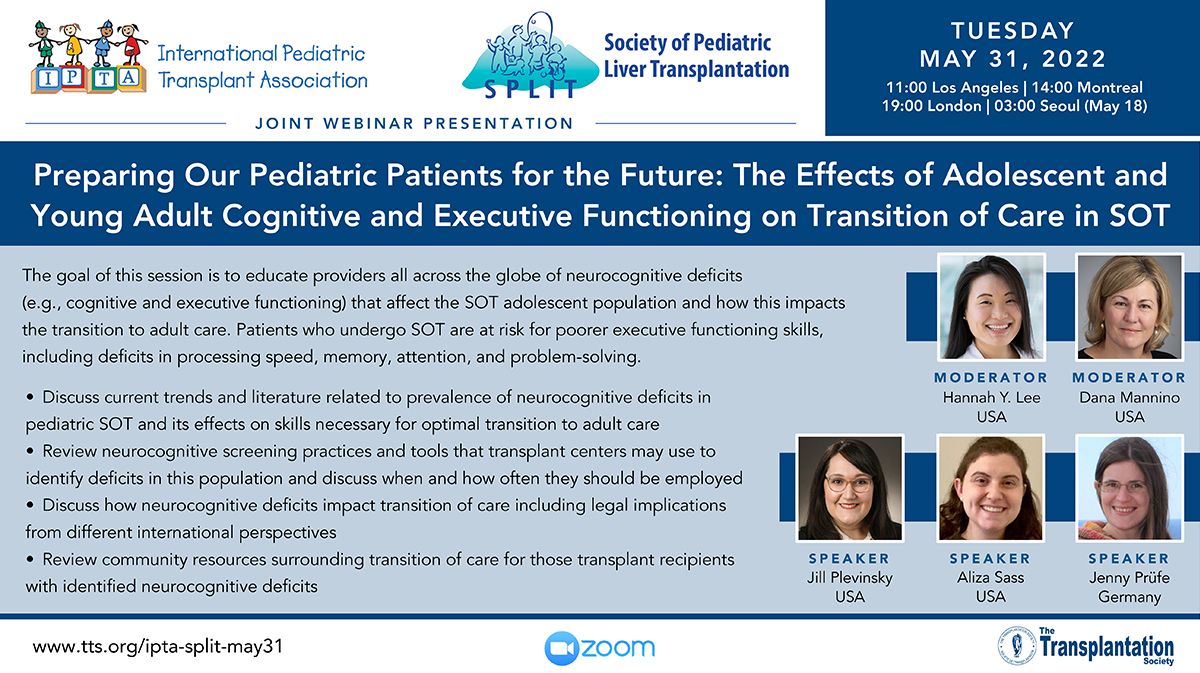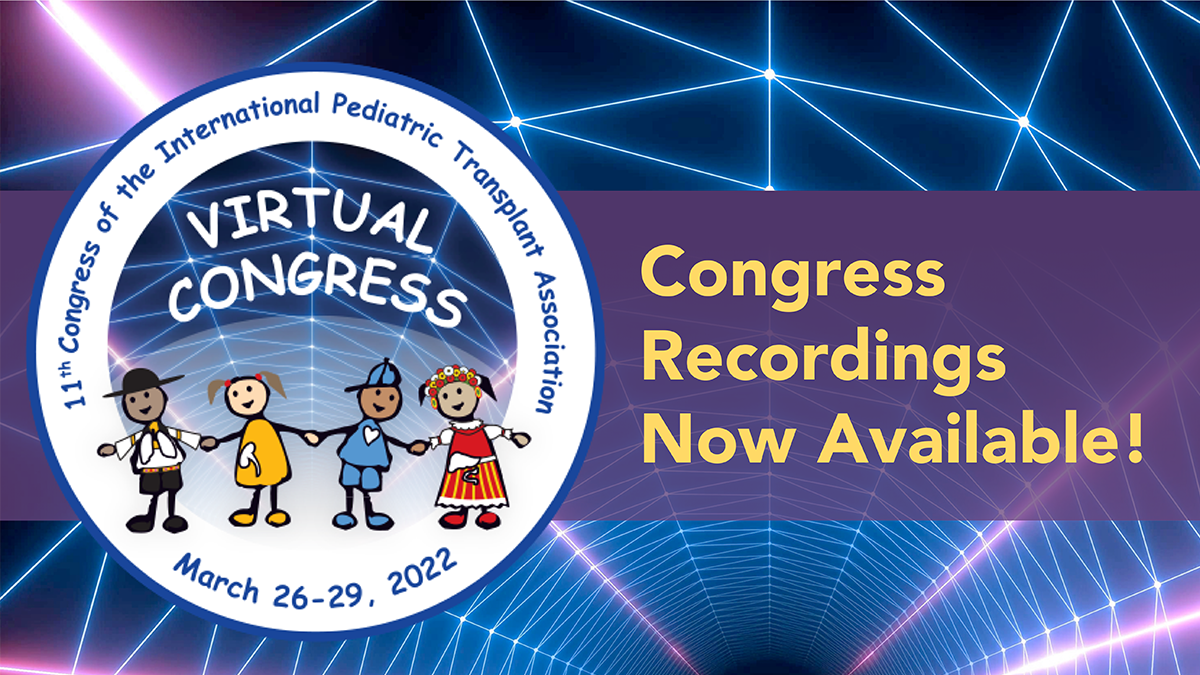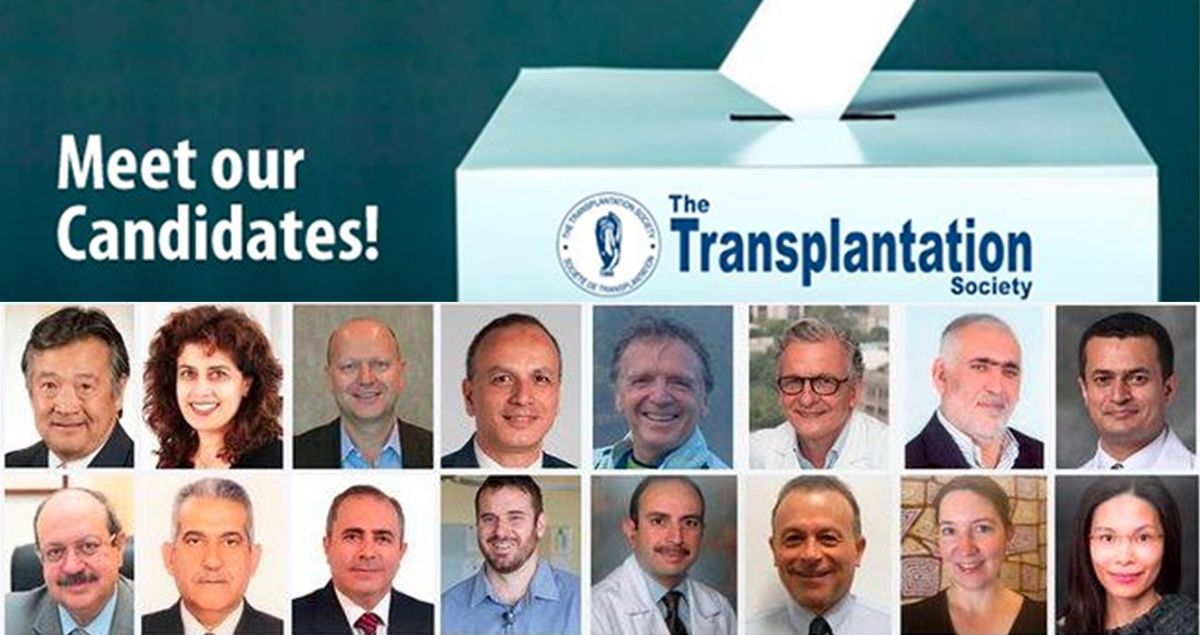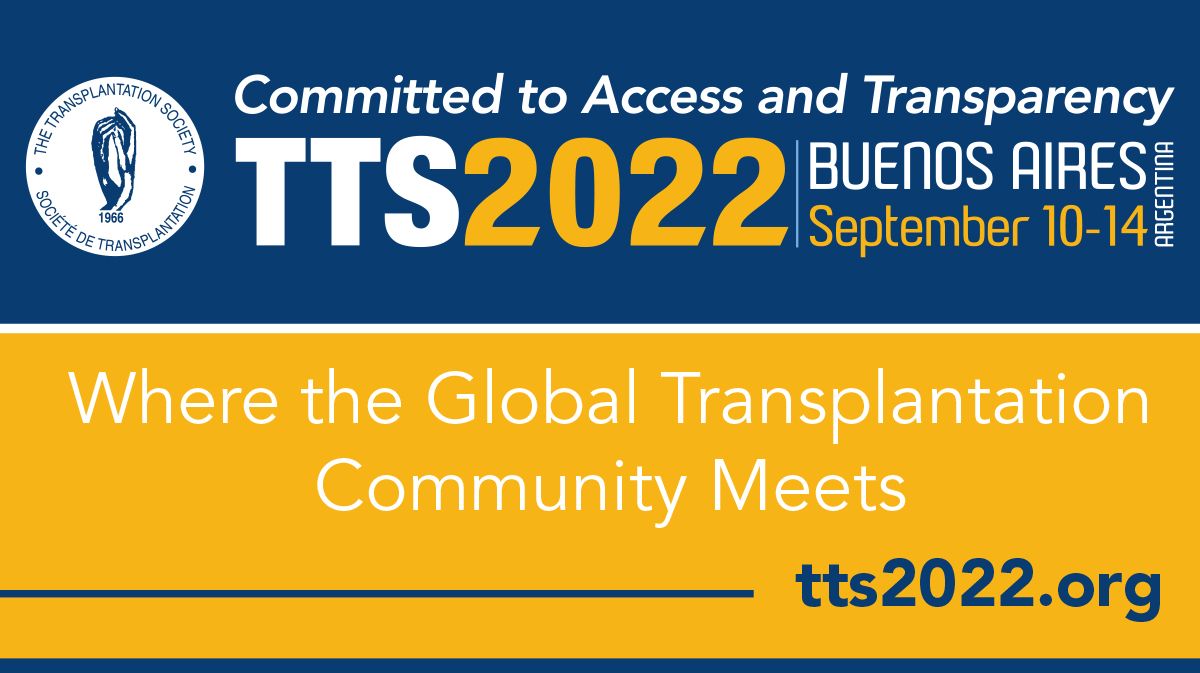
Nominations for Upcoming IPTA Elections 2023 | Pediatric Transplantation Journal Update
2022 Pediatric Journal Awards | Peer Mentoring Initiative: A Career Development Activity
IPTA ID Committee Update | IPTA Communications Committee Update | IPTA ListServ
Upcoming Webinar | IPTA 2022 Congress Recordings Now Available | News from TTS

 Dear IPTA Members,
Dear IPTA Members,
I began to write this newsletter on April 20th 2022, Transplant Nurses Day! This may be one ‘official’ day when your work is acknowledged and celebrated, but we all know that you are instrumental to the success of organ transplantation. Thank you for your dedication and pursuit for excellence! April is also Donate Life month, an initiative created in the USA in 2003 to raise awareness for organ and tissue donation. It is also an opportunity to thank living donors and relatives of deceased donors whose altruistic actions have saved many, many lives.
Slightly more than a year ago, I became the President of this great organization. Such an amazing honor! I knew that such a position was going to add more work and responsibilities to my already busy schedule. What I didn't know was how enjoyable the whole experience was going to be. I have received a great deal of support and help from a brilliant and devoted TTS team, from the EC and council members, and from the membership at large. There are no words to express my gratitude I have felt working with you.
We have had many accomplishments during this past year. The virtual congress was a smashing success!! The feedback I have received from sponsors, speakers and attendees has been very positive such as "this was the best virtual congress I have ever attended" or "technically, the congress was flawless without any glitches whatsoever" among others. Listening to the patients' stories was very moving, and they reminded why we are so involved with IPTA. We all want to improve the care of children with organ transplants all over the world. Here are some stats which will give you an indication of what we achieved:
- 592 registered from 60 countries worldwide
- Max. 150 attendees logged in online simultaneously
- 257 abstracts submitted across 5 continents
- 145 new IPTA members as a result of the special Congress membership package offered (large amounts of new members from Latin America and Africa, Trainee and Allied Health engagement particularly strong)
I am also very pleased to share that we are building a culture of philanthropy to support educational programs for mid and low-income countries. During the last year, our fund-raising efforts yielded almost $40,000 in donation to support these programs. I want to thank all the donors who generously contributed to this initiative. More details on these programs will follow in the coming months.
Finally, I would like to announce that we began preparations for the next biennial IPTA Congress 2023 which will take place in the beautiful city of Austin, Texas on 25-28 March, 2023. Instruction for abstract submissions will be announced soon.
Wishing you all the best, now and always!
Yours sincerely,
Carlos O. Esquivel
IPTA President
IPTA Webinars and Recordings
News from TTS
Past Issues
IPTA Newsletters
- IPTA Newsletter - February 2026
- IPTA Newsletter - December 2025
- IPTA Newsletter - October 2025
- IPTA Newsletter - June 2025
- IPTA Newsletter - March 2025
- IPTA Newsletter - December 2024
- IPTA Newsletter - October 2024
- IPTA Newsletter - May 2024
- IPTA Newsletter - February 2024
- IPTA Newsletter - November 2023
- IPTA Newsletter - September 2023
- IPTA Newsletter - May 2023
- IPTA Newsletter - March 2023
- IPTA Newsletter - December 2022
- IPTA Newsletter - October 2022
- IPTA Newsletter - July 2022
- IPTA Newsletter - May 2022
- IPTA Newsletter - December 2021
- IPTA Newsletter - October 2021
- IPTA Newsletter - June 2021
- IPTA Newsletter - October 2020
- IPTA Newsletter - June 2020
- IPTA Newsletter - March 2020
- IPTA Newsletter - December 2019
- IPTA Newsletter - September 2019
- IPTA Newsletter - July 2019
- IPTA Newsletter - April 2019
- IPTA Newsletter - December 2018
- IPTA Newsletter - September 2018
- IPTA Newsletter - June 2018
- IPTA Newsletter - March 2018
- IPTA Newsletter - December 2017
- IPTA Newsletter - September 2017
- IPTA Newsletter - December 2016
- IPTA Newsletter - September 2016
Contact
Address
Cell Transplant and Regenerative Medicine Society
c/o The Transplantation Society
740 Notre-Dame Ouest
Suite 1245
Montréal, QC, H3C 3X6
Canada



